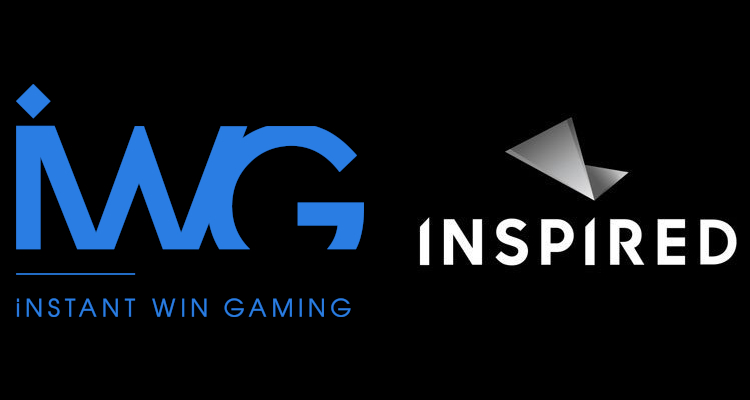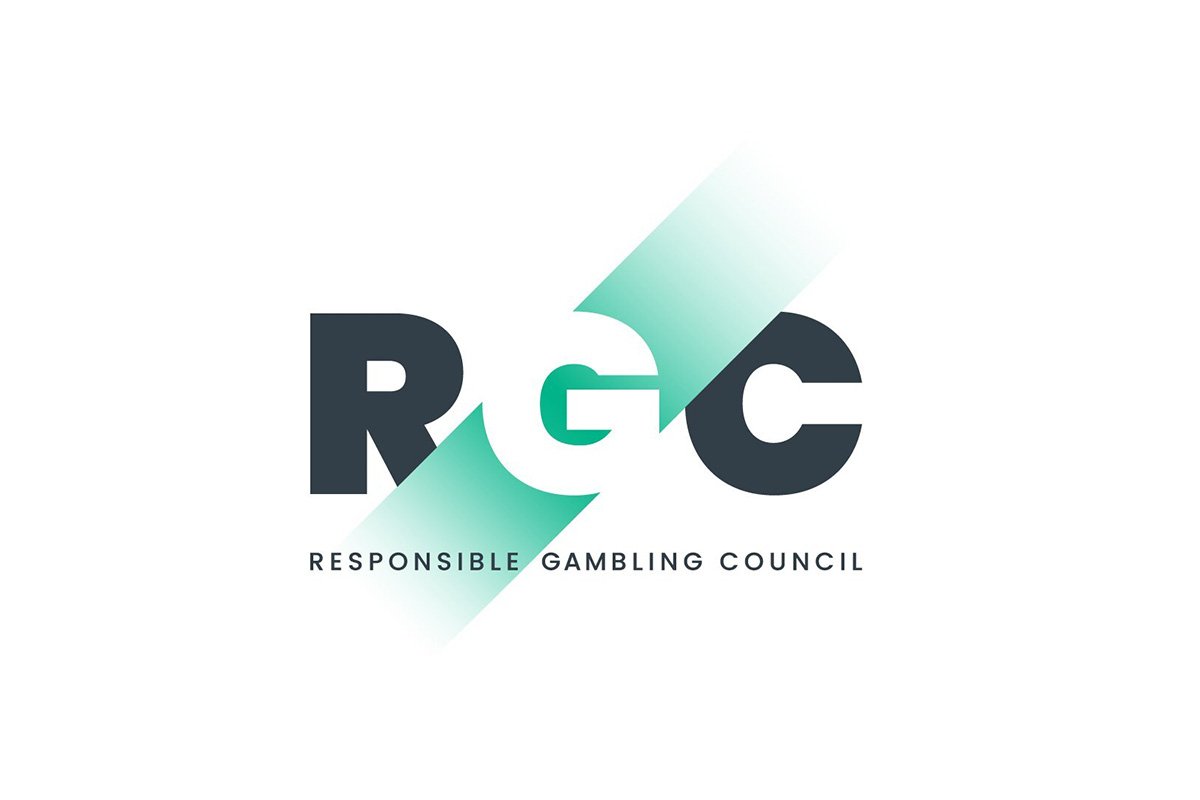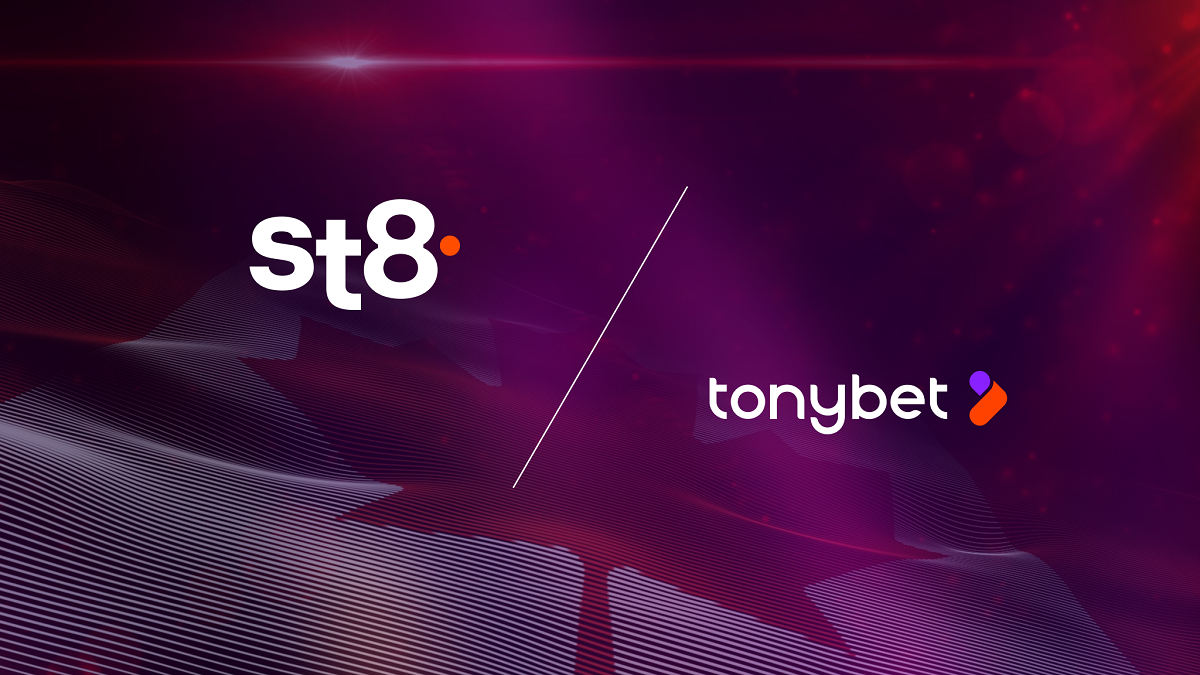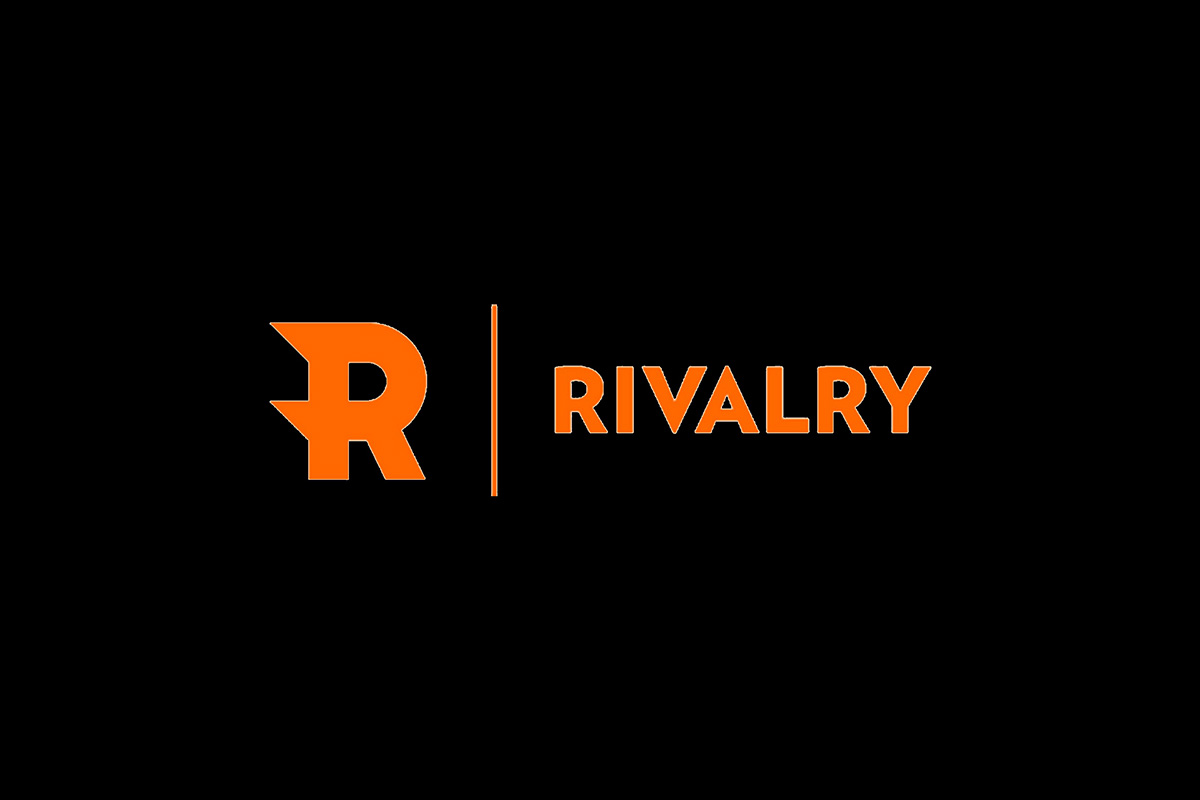Canada
Exclusive Q&A with Rhydian Fisher, CEO of Instant Win Gaming

Rhydian Fisher is CEO of Instant Win Gaming (IWG), the leading provider of instant win style games to lotteries, commercial brands and platforms in the digital lottery and online gaming sectors. Following the launch of the company’s games with the New Hampshire Lottery, we had the opportunity to speak to Rhydian about recent developments at IWG, the expanding market for digital eInstant lottery games, and in particular the US Lottery opportunity.
Gaming Americas: Congratulations on your games going live with the New Hampshire Lottery. For some background, what are digital eInstants and how will they enhance the lottery’s online offering?
Rhydian Fisher (RF): Digital eInstants as they’re called in the lottery world, or instant win games as they’re often referred to in the commercial gaming world, are a category of online wagering games where the interactive fun is the primary focus. In a general sense, whereas online casino games are all about the chance to win with some interactive fun, eInstants are all about the interactive fun with some chance to win. This differing orientation is really the root of it all. Typical casino players are motivated by the thrill of staking money, and the corresponding volatility of winning and losing. On the other hand, typical eInstant players are, first and foremast, seeking some casual entertainment but love the idea that they might just win some money. This difference very much mirrors casino versus lottery entertainment in general.
To players, eInstants are casual in style, and often really simple to play. However, designing games with these characteristics, yet deliver sustained engagement, is anything but simple. Here at IWG, we have a 20-year history of developing exclusively digital eInstants. No one else has been so solely focused on this in the dedicated way that we have. And, when you have the opportunity to devote consistent focus to one category of games over a such a sustained period of time, you get amazingly good at building them. Today, we proud to be able to say that we’re the best in the world at it.
In New Hampshire, we’ve made a strong start by launching a range of eInstants including New Hampshire Cash Expander, a localized title that tailors our popular Cash Expander mechanic specifically for New Hampshire players. Through previous experience, we know that localized games really resonate with players and we’re expecting the latest title to be a big hit.
Gaming Americas: What is the state of the eInstant lottery market today?
RF: We were fortunate to get involved with this category early on, and it’s certainly been an evolution. In the very beginning, circa 2000, a few lottery operators, like Camelot in the UK, were launching online sales, and were looking for digital games that paralleled their retail instant ticket games. Back then, we had no experience in this, but neither did anyone else, so we set-up shop, started imagining how these games might play, and then jumped in and began building them. From there it’s been a continuous process of iteration. We develop a game, we release it, we analyze the resulting data, we apply what we learn, and we develop the next game. We repeat this process over and over – it’s pretty straight forward. But, it’s culmination of 20 years of learnings that make our games authentic.
The lottery market has become our core focus. Today, we provide eInstant games to 23 WLA/NASPL member lotteries around the world. More and more lotteries are setting up ecommerce channels for what has predominately been a retail-only sales model. We expect this trend to continue. In the US, for example, lottery is a $90 billion per year category, and instant games represent more than 65% of this. Therefore, as these lotteries launch online sales channels, it is very necessary that they have digital eInstants to offer their players.
Gaming Americas: How does managing an eInstant portfolio compare to managing a retail instant portfolio?
RF: There are many similarities, but the demands of the internet channel means that everything is accelerated. One of the more obvious examples is the percentage of prize payout. In the US, a typical retail instant game will have a prize payout of 65% – 80%. This has proven to be optimal for a product that can only be purchased by players during their periodic trips to a retail outlet. However, the addition of an internet channel means that games can be now be purchased wherever and whenever. This translates into much higher play volume, and to be fair to players, this higher play volume must be supported with a higher prize payout. As a result, a typical online eInstant game will have a prize payout of 80% – 85% or more.
A less obvious, but equally important example, is frequency of game launches. Lottery players seek out games that are casual to play. At the same time, they are particularly drawn to the newest titles. With retail instants this might mean a roadmap of games with new launches on a monthly basis. In the internet world, the time dimension is much faster paced. A typical eInstant roadmap will plan a two-week cycle between game launches for most of the year, supplemented by weekly launches during peak seasonal periods.
For suppliers, it helps if you have a culture that thrives in complexity. Across the 23 lotteries that we supply around the world, we’ve never ever delivered the same game twice. There are always custom elements required for each delivery which will range from game theme to prize math to style of outcome engine to a myriad of other factors. The bottom-line, in the lottery sector, non-standard is the standard.
Gaming Americas: Certainly, the retail channel is hugely important to lotteries. What impact do eInstants, and in general, selling lottery online have on retail sales?
RF: This has been one of the real success stories as lotteries modernize. Of course, lotteries everywhere are either already selling their games online, or are considering doing so in the future. It is now common for a lottery’s online channel to account for 20% or more of total sales. Along with this, eInstants will often represent 70% or more of these online sales.
At first, the specter of an additional sales channel can be a concern to the brick and mortar retailers who have been a lottery’s exclusive channel partner to this point. However, across the board, selling online has proven to increase retail sales as well. The reason is straightforward. The lottery’s traditional, cash-only, in-person way of selling games has not kept pace with the modern consumer. Long time players might continue to purchase in this traditional way, but new players can no longer be acquired as efficiently. Modernization, meaning adding online sales, opens up the lottery to a far broader world of potential new players. And, when a lottery introduces a player to its games through its online channel, that player becomes a buyer at retail as well.
Our customer the Michigan Lottery, for example, has been selling their games online for more than five years and have seen traditional retail growth of 45% during this period. Our customer the New Hampshire Lottery, in just its first year of online sales, simultaneously, grew retail sales by 16%. The same trend holds true for every lottery in the US that has instituted online sale. Once a lottery begins selling online, they quickly experience a shift in the support they get from their very important retail partners–from concerned resistance to proactive support.
Gaming Americas: What steps are lotteries taking to support their retail partners?
RF: Even in the case of a lottery where 20% of its sales are online, this means that 80% comes through its retail channel. So, lotteries always take steps to include their retail partners in their online sales initiatives. And, there are many ways to do this.
Our customer, the Pennsylvania Lottery, has integrated its traditional retailers into its affiliate program. A retailer earns affiliate fees by signing up players for online accounts.
Our customer, the Michigan Lottery, offers players the option to fund their account by purchasing a prepaid lottery card at any of their traditional retail outlets. The retailer earns a commission on these sales.
Every lottery we work with is innovating on ways to sell online while also expanding retail sales. And, the collaboration is producing great results.
Gaming Americas: What has been the COVID-19 impact on the lottery sector?
RF: I’ve been in contact with many lotteries during the COVID-19 crisis. Of course, their number one priority is keeping their staff safe and healthy. Beyond that, lotteries understand that they serve an essential function during normal times, and even more so during times like now—generating vitally needed funds for their beneficiaries. Therefore, maintaining uninterrupted operations, in a world of disrupted supply logistics and shelter-in-place orders, is more than ever, the day-to-day focus. No surprise, but those lotteries that currently sell their games online have increased their marketing focus on this channel. And, many lotteries not yet online have been asked to immediately explore plans for setting up online sales, to potentially be actioned once we’re beyond the crisis. Certainly, over time, all lotteries will need to modernize to keep pace player preferences. I suspect that the urgency of the moment may accelerate the thinking on when to do so.
Powered by WPeMatico
Alberta iGaming Corporation
Alberta iGaming Corporation Partners with Responsible Gambling Council

The Alberta iGaming Corporation (AiGC) has announced a partnership with the Responsible Gambling Council (RGC) that will make RG Check accreditation a mandatory requirement for all internet gaming (iGaming) sites entering Alberta’s regulated market.
This collaboration demonstrates Alberta’s commitment to player protection by ensuring every regulated operator meets the highest evidence-based standards for responsible gambling.
“Alberta is committed to building a safer, regulated iGaming environment where player protection comes first. By requiring RG Check accreditation, we’re ensuring that every iGaming operator in our market has demonstrated their commitment to player safety through independent verification of their responsible gambling programs,” said Dan Keene, Interim AiGC CEO.
RG Check is a Canadian-made, globally trusted, independent responsible gambling accreditation program. Developed by RGC more than a decade ago, RG Check evaluates sites against rigorous, evidence-based standards, covering governance, player safeguards, staff training, and marketing practices. The accreditation provides clear, measurable accountability and has become the gold standard for responsible gambling across multiple jurisdictions.
“This partnership with AiGC demonstrates the power of regulators and responsible gambling experts working together to protect players from day one. Alberta is building on a strong foundation established in Ontario, where RG Check has proven its value in creating safer gambling environments. This proactive approach ensures that player protection isn’t an afterthought; it’s built into the market from the ground up,” said Sarah McCarthy, CEO of RGC.
Alberta’s requirement will ensure that:
• All iGaming sites must achieve RG Check accreditation
• Operators must maintain their accreditation in good standing while operating in Alberta
• RGC will conduct assessments based on internationally recognized responsible gambling standards
• AiGC will work closely with RGC to ensure ongoing compliance and continuous improvement.
Requiring accreditation in Alberta’s market reflects AiGC’s commitment to promoting responsible gambling, and will create a level playing field where protecting players is a competitive advantage, not just a compliance checkbox.
For operators who currently hold RG Check accreditation in another jurisdiction, the transition to Alberta will be streamlined. While a distinct Alberta accreditation is still required, existing accreditations will be recognized to simplify the process and reduce costs. Operators will benefit from an efficient onboarding process that reduces administrative burden while maintaining the same rigorous standards for player protection.
The post Alberta iGaming Corporation Partners with Responsible Gambling Council appeared first on Americas iGaming & Sports Betting News.
Canada
St8 launches in Ontario through partnership with Tonybet

Casino games aggregator and full-service technology provider, St8 has officially gone live in Ontario’s regulated market through a new partnership with international brand Tonybet.
Through the partnership, Tonybet gains access to St8’s casino games aggregation platform, offering a wide range of premium titles from leading providers through a single API, alongside bonusing and promotional tools, compliance and licensing solutions, advanced reporting and data capabilities.
Built as a single scalable platform, St8’s products are designed to help operators launch and grow across regulated markets with fast, flexible technology solutions while maintaining full compliance.
The agreement marks a further step in St8’s global growth strategy as the company continues to expand its presence across regulated jurisdictions.
Vladimir Negine, CEO at St8, said: “Going live in Ontario is an important milestone for St8 and reflects our continued commitment to growth in regulated markets. Since receiving our Ontario licence, we have focused on building strong local partnerships and delivering a platform that combines scalability, speed and compliance.
“As a respected international brand, Tonybet shares our commitment to building reliable solutions for regulated markets, and we look forward to working closely together as we continue to expand our presence in regulated jurisdictions worldwide.”
Kiryl Liudvikevich, Head of Product at Tonybet, added: “As we expand our presence in Ontario, it is important for us to work with technology partners that support continued growth while meeting the highest regulatory standards.
“St8’s platform gives us the flexibility to integrate a wide range of content and tools through a single connection, helping us scale smoothly while maintaining a strong focus on player experience.”
St8 continues to lead the way as a partner of choice for regulated markets. In addition to its Ontario licence, the company holds licences in key regulated jurisdictions like the United Kingdom, Sweden and Romania, among others.
The post St8 launches in Ontario through partnership with Tonybet appeared first on Americas iGaming & Sports Betting News.
Canada
Rivalry Corp. Announces Significant Reduction in Operations and Evaluation of Strategic Alternatives

Rivalry Corp. announced that its Board of Directors has approved a significant reduction in operating activity as the Company evaluates strategic alternatives in respect of its assets and operations.
The Company is engaged in discussions with third parties regarding potential transactions. However, in light of recent performance volatility, the Board has determined to materially reduce the scale of operations while assessing whether a strategic transaction or other alternative can be advanced.
Effective immediately, the Company is implementing substantial cost reductions, including a significant workforce reduction and reduced operating expenditures. The Company has paused player activity on its platform and is facilitating player withdrawals in the ordinary course.
The Company is assessing a range of potential alternatives, which may include asset-level transactions, corporate transactions, restructuring initiatives or other strategic outcomes.
Given the Company’s reduced operating scale and the ongoing evaluation process, there can be no assurance that any strategic alternative will be completed or that operations will continue in their current form.
The post Rivalry Corp. Announces Significant Reduction in Operations and Evaluation of Strategic Alternatives appeared first on Americas iGaming & Sports Betting News.
-

 Blueprint Gaming5 days ago
Blueprint Gaming5 days agoBlueprint Gaming unleashes Frankenstein’s Fortune blending dynamic modifiers with multi-path bonus offering
-

 Compliance Updates7 days ago
Compliance Updates7 days agoHow to Apply for a Finnish iGaming License: Gaming in Finland Webinar on Application Steps and Technical Standards
-

 Big Daddy Gaming7 days ago
Big Daddy Gaming7 days agoBig Daddy Gaming® Expands European Footprint After MGA Licence Approval
-

 Latest News4 days ago
Latest News4 days agoGGBET UA hosts Media Game – an open FC Dynamo Kyiv training session with journalists from sports publications
-

 Compliance Updates5 days ago
Compliance Updates5 days agoMGA Publishes Results of Thematic Review on Self-exclusion Practices in Online Gaming Sector
-

 Amusnet6 days ago
Amusnet6 days agoAmusnet Unveils Casino Engineering and Technology Milestones Achieved in 2025
-

 Brais Pena Chief Strategy Officer at Easygo7 days ago
Brais Pena Chief Strategy Officer at Easygo7 days agoStake Goes Live in Denmark Following Five-Year Licence Approval
-

 Dan Brown5 days ago
Dan Brown5 days agoGames Global and Foxium return to the Colosseum in Rome Fight for Gold the Tiger’s Rage™



















